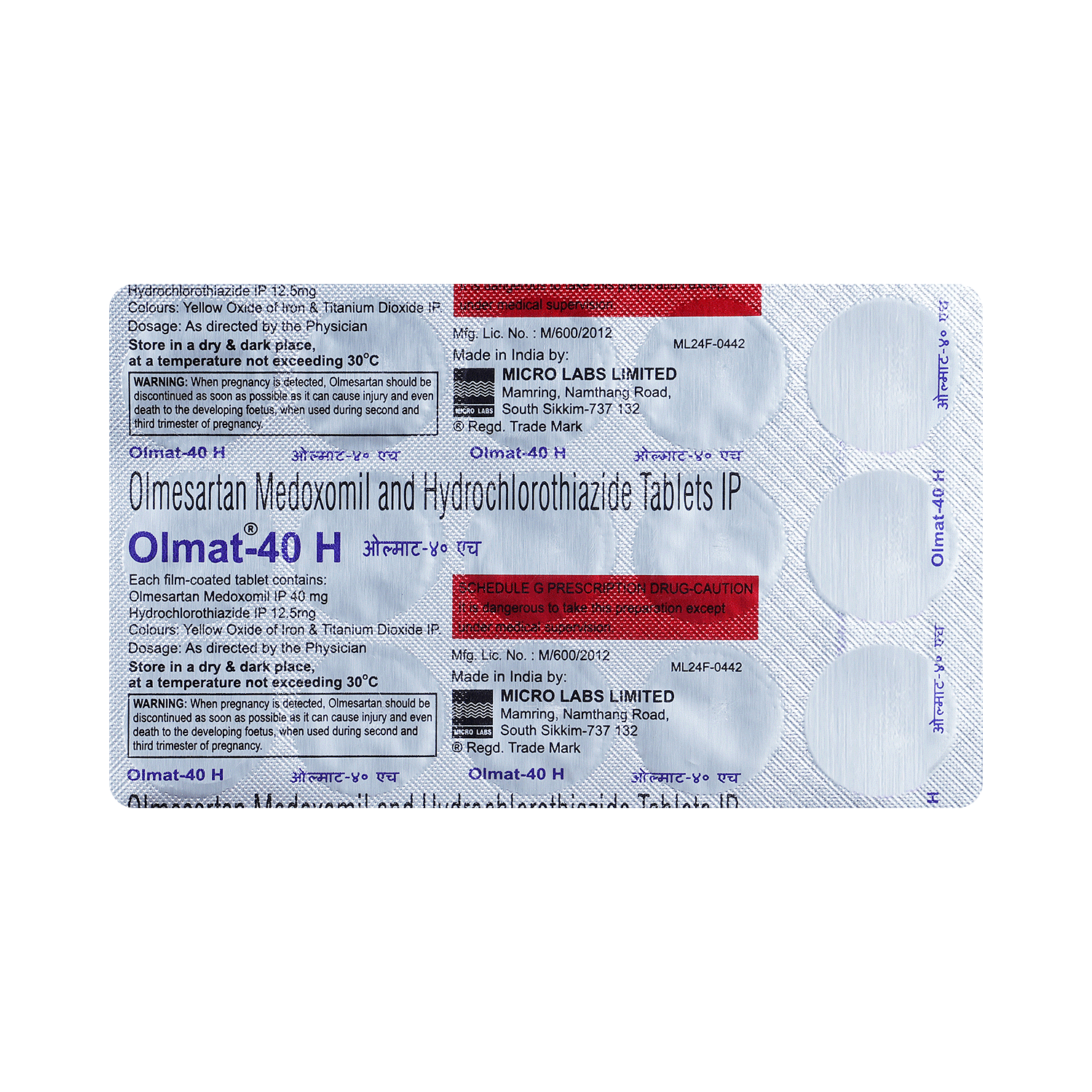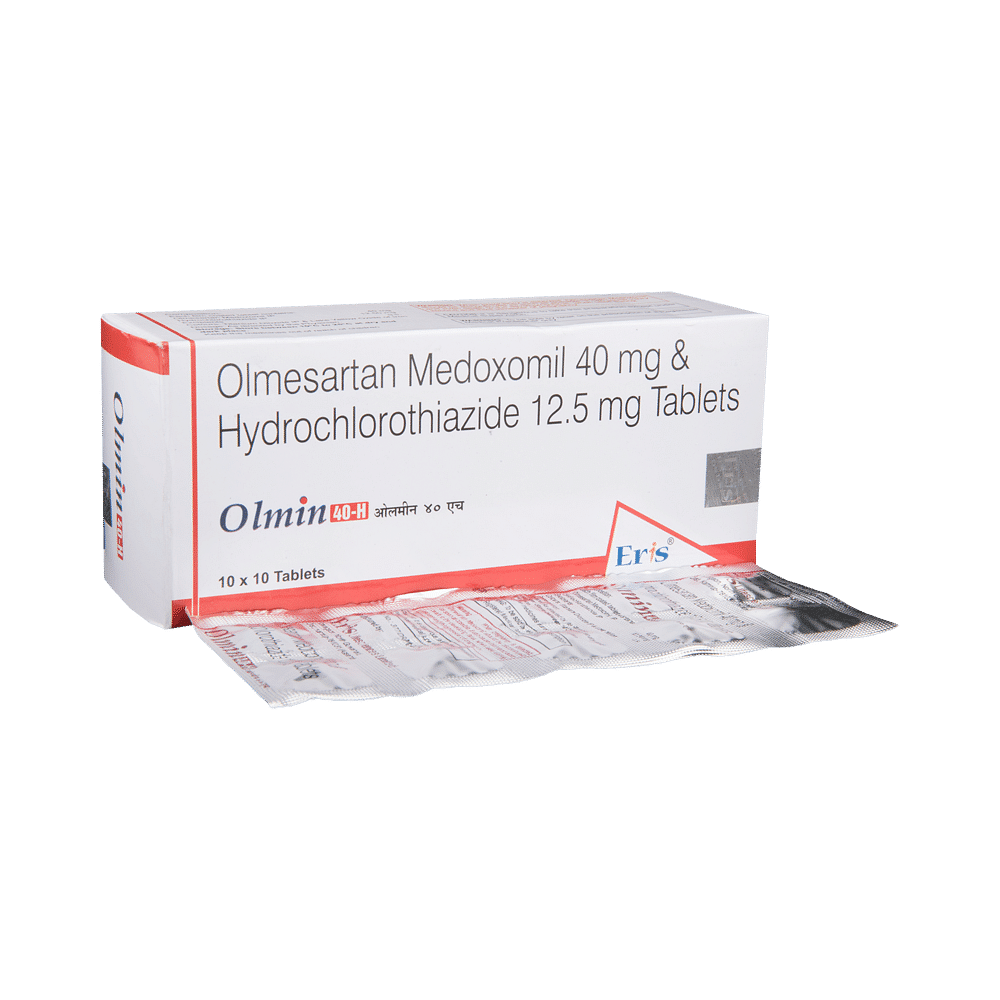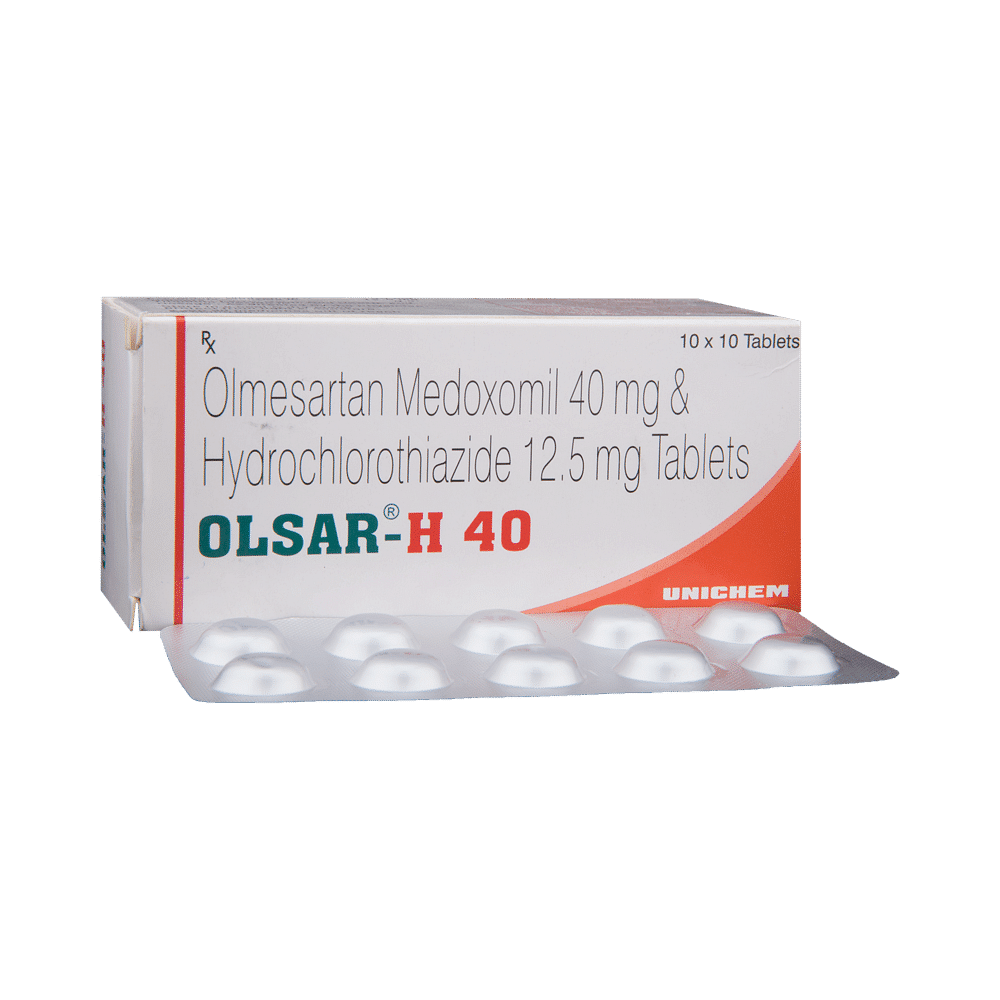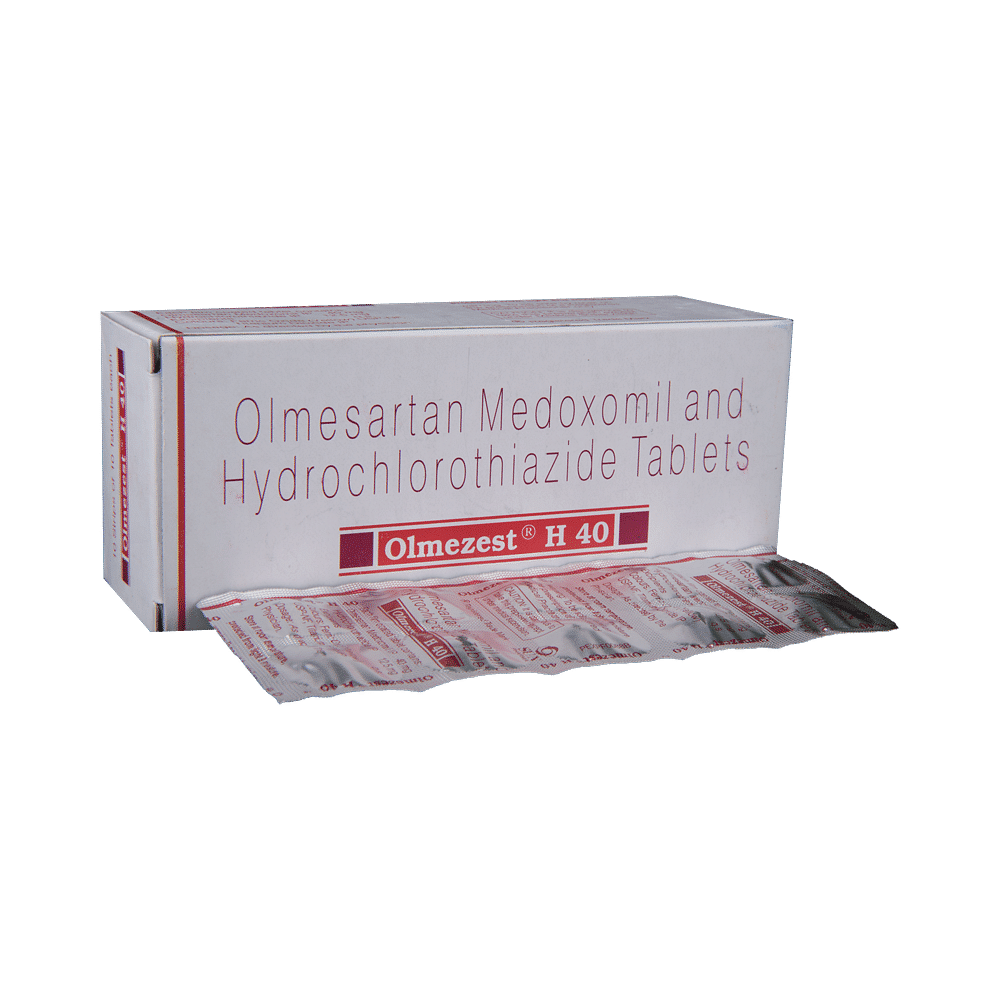
Olmepal H 12.5mg/40mg Tablet
Manufacturer
Albia Biocare
Salt Composition
Hydrochlorothiazide (12.5mg) + Olmesartan Medoxomil (40mg)
Key Information
Short Description
Olmepal H 12.5mg/40mg Tablet is a combination of two medicines that helps to control high blood pressure in different ways.
Dosage Form
Tablet
Introduction
Olmepal H 12.5mg/40mg Tablet is a combination of two medicines that helps to control high blood pressure in different ways. If high blood pressure is not treated it can lead to heart attacks, strokes and kidney failure.
Directions for Use
Take this medicine in the dose and duration as advised by your doctor. Swallow it as a whole. Do not chew, crush or break it. Olmepal H 12.5mg/40mg Tablet may be taken with or without food but it is better to take it at a fixed time.
How it works
Olmepal H 12.5mg/40mg Tablet is a combination of two medicines:
Quick Tips
You have been prescribed Olmepal H 12.5mg/40mg Tablet for the treatment of high blood pressure. It can be taken with or without food. Olmepal H 12.5mg/40mg Tablet may cause dehydration. Drink plenty of fluids and inform your doctor if you develop extreme thirst, very dry mouth or muscle weakness. It may cause dizziness. Get up slowly when rising from a sitting or lying position. Use of Olmepal H 12.5mg/40mg Tablet during pregnancy or breastfeeding is unsafe.
Related Medicines

Olmat-40 H Tablet

Olmat 40 H Tablet

Olmin 40-H Tablet

Olsar-H 40 Tablet

Olmesar H 40 Tablet

Olmezest H 40 Tablet

Olmetime-H 40 Tablet

Ezisartan-OH 40 Tablet

Olmix H 12.5mg/40mg Tablet

Olmark-H 40 Tablet
Frequently asked questions
What is the time frame for Olmepal H 12.5mg/40mg Tablet to take effect?
You may notice a decrease in your blood pressure effectively within 2 weeks of starting Olmepal H 12.5mg/40mg Tablet, with full benefits seen after about 8 weeks.
At what time of the day should you take Olmepal H 12.5mg/40mg Tablet?
Take your first dose before bedtime to minimize dizziness, and thereafter, take at the same time every day as directed by your doctor.
Can I feel dizzy after taking Olmepal H 12.5mg/40mg Tablet?
Yes, the medicine can cause dizziness when you suddenly get up from a lying or sitting position; to lower this risk, rise slowly.
What lifestyle changes should I make while using Olmepal H 12.5mg/40mg Tablet?
To maintain overall health, avoid excessive salt in your diet and find ways to reduce stress through activities like yoga, meditation, or hobbies. Ensure a sound sleep, stop smoking, and consume alcohol in moderation. Exercise regularly and follow a balanced diet that includes whole grains, fresh fruits, vegetables, and fat-free products.
Can Olmepal H 12.5mg/40mg Tablet cause weight gain?
No, it does not cause weight gain; however, in rare cases, chronic diarrhea with substantial weight loss may occur, prompting the doctor to recommend discontinuation of the medicine.
What are the serious side effects of Olmepal H 12.5mg/40mg Tablet?
Serious side effects include skin rash or itchiness, painful joints, fast heartbeat, shortness of breath, tightness in the chest, aching muscles not caused by exercise, and swelling of hands, feet, or ankles. Also, symptoms indicating high potassium levels, such as nausea, diarrhea, muscle weakness, and changes in heart rhythm, may occur.
Can Olmepal H 12.5mg/40mg Tablet affect my fertility or sex life?
There is no firm evidence suggesting an effect on fertility; however, it may improve erectile dysfunction in some cases. Discuss any concerns with your doctor.
How long do I need to take Olmepal H 12.5mg/40mg Tablet? Is it safe for long-term use?
You may have to take the medicine lifelong as it controls high blood pressure but does not cure it. Long-term use is generally considered safe, but regular blood tests are recommended to check kidney function and maintain healthy levels of urea, creatinine, and potassium.
Can I take Olmepal H 12.5mg/40mg Tablet before surgery?
Inform your doctor that you're taking the medicine at least 24 hours before surgery to avoid further reducing blood pressure with anesthetics.


